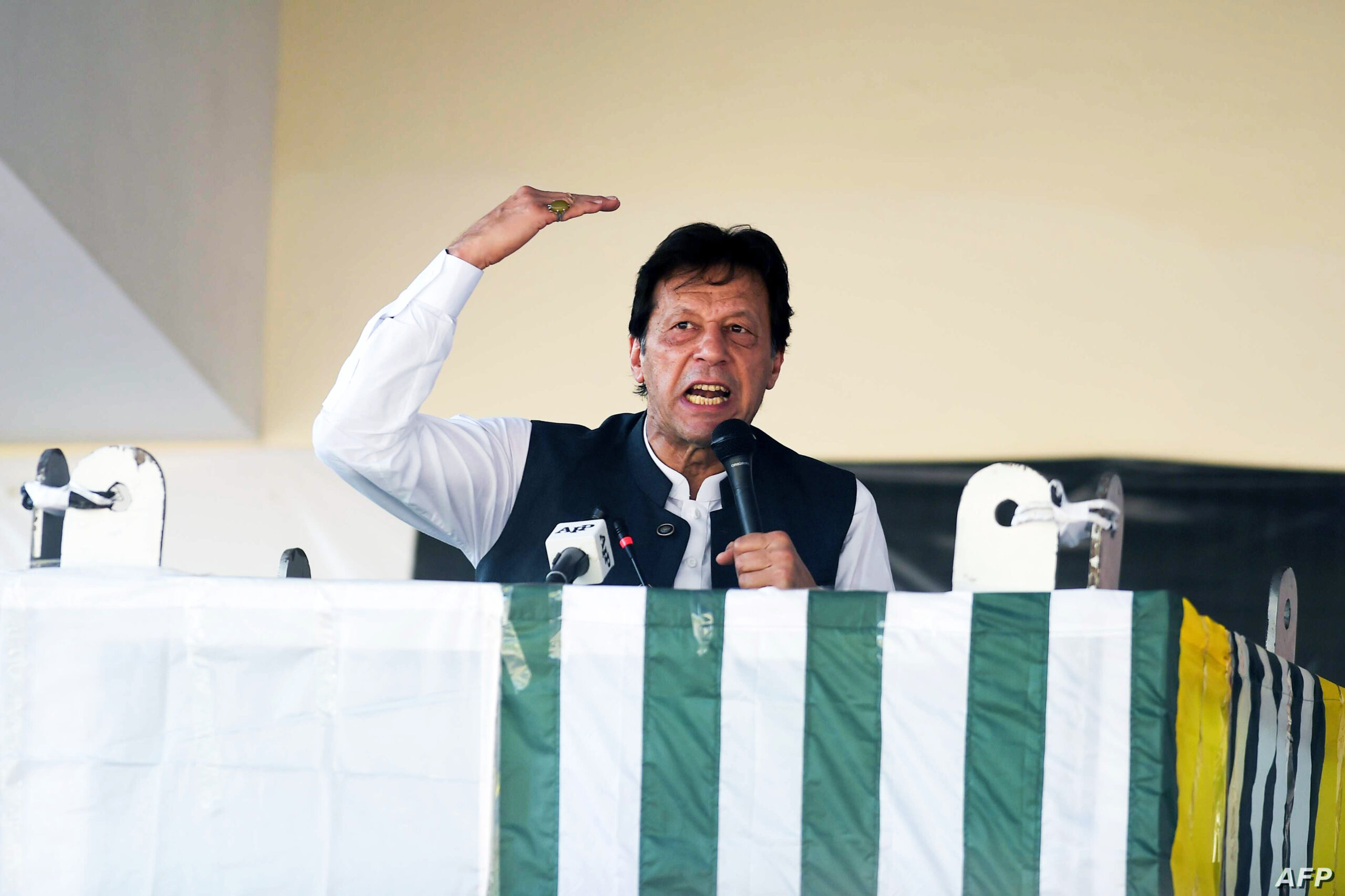Historically, general elections in Azad Jammu and Kashmir (AJK) have been easy to predict. The political party at the helm of affairs in Islamabad is usually crowned in Muzaffarabad. This time too, there was no major upset in Azad Jammu and Kashmir elections held on 25 July — the first after India revoked the special status granted under Article 370 of the Indian Constitution to the Indian Illegal- ly-Occupied Jammu and Kashmir on 5 August 2019.
As was being predicted, the ruling party in the Centre, Pakistan Tehreek-i-Insaf (PTI) secured electoral victory in the elections for AJK Legislative Assembly. It gained a simple majority in a house of 53. Traditionally, the Kashmiri vote swings in favour of the political party that is in power in Pakistan.
As many as 724 candidates including 13 women (9 from different political parties and 4 independents) directly contested for 45 seats of the AJK Legislative Assembly. A total of 261 independent candidates were also in the race in the 33 AJK constituencies while 56 independents were vying for the 12 refugees’ seats.
PTI, PML-N and PPP were the main Pakistan-based political parties participating in the AJK elections while Jammu and Kashmir People’s Party (JKPP), and the All Jammu and Kashmir Muslim Conference (AJKMC) among others were the AJK-based parties.
The AJK-based parties won one seat each while the PTI won 25, PPP won 11 seats and PML-N secured six of the 45 seats. Jamat-e-Islami, one of the mainstream religious parties in Pakistan, has a sizable vote bank in the AJK, although the party has never been able to win more than a couple of seats.
In the 2016 elections, the PTI could win only two seats. It merits mention here that the PML-N got itself registered in AJK in 2010, PTI in 2016 while PPP was present in the AJK since 1970. Before 2010, Muslim Conference was considered to be the representative party of the Pakistan Muslim League in AJK.
Elections in AJK usually bear the prints of Pakistani politics. It has always been a true reflection of Pakistani politics but this time around, the political campaign was unprecedented in terms of polarization, hatred, and loathing. Never before had Pakistani politicians railed against one another with such abandon. Mudslinging and accusations of being anti-state remained the hallmark of the election campaign this time.
The three main political parties based in Pakistan took these elections as a matter of political life and death for them given the high political temperature in Pakistan. The respective party interests led the election campaign and sloganeering. There was little for the three political parties to establish that they were contesting the AJK elections for the Kashmir cause.
None of the contesting political parties presented any substantive socioeconomic programme for the development of AJK that could be publicly debated or discussed. All focused on just point-scoring with public-appealing slogans to do this or that once their party secures victory besides bashing of the political opponents.
It seemed that the three main political parties wanted to gain specific political advantages out of the AJK elections and had little to do with the Kashmir cause and betterment of the AJK. The debate on the Kashmir issue remained so polarized during the election campaign and it would be fair to say that whatever was said was detrimental to the Kashmir cause.
The reason for the highly polarising election campaign in the AJK was the heated political atmosphere in Pakistan. The formation of the PDM in recent months, scuffle between the parliamentarians in the parliament house and the statements of political leaders against one another led to a charged political atmosphere.
AJK elections or politics have little to no impact on Pakistani politics. On the contrary, Pakistani political trends reflect in Azad Jammu and Kashmir and Pakistani politics overshadows AJK politics. Still, top Pakistani political parties want to be seen doing well in AJK polls for the sake of appearances and this race was no different.
For PPP, it was a chance to dispel the impression that PPP is shrinking at a rapid rate. It has shrunk to a regional party. To some extent, it succeeded in its objective by emerging as the largest opposition party in AJK by securing 11 seats. The PPP also won the race for the main opposition party against the PML-N.
For PTI, defeat in the AJK elections at a time when they are in power in the Centre would mean they have really lost peoples’ confidence in their policies. It was a good time for Imran Khan’s party to counter the impression that the party’s performance in terms of economy and ‘failure’ to control the rising inflation has caused an irreparable dent to the ruling party. The electoral victory in the 25th July elections may set the pace for the PTI to secure another term at the Centre.
For the PML-N, it was a good chance to continue their winning spree. It was a trial of the ‘Vote ko izzat do’ mantra as Maryam Nawaz led the election campaign in the AJK. The party is passing through testing times with its top leadership out of the political arena. An electoral victory at this point could have strengthened the impression of stand-in leadership having filled the leadership vacuum.
Now that the PTI has won the AJK elections and is set to form its government there, it is hoped that the relationship between the Centre and AJK remains smooth in the coming days. There would be no hostility, no anti-Centre statements from the AJK. There would be no more anti-ruling party voices from the AJK. And most important, the ruling party in the Centre can pass legislation through the AJK assembly as required under the changing political scenario in the region.
Prime Minister Imran Khan’s aggressive stand on India’s scrapping of autonomy to the Indian Illegally-Occupied Jammu and Kashmir in August 2019 would get stronger. Pakistan’s Kashmir policy would get a new direction given the trust posed by the Kashmir people in the leadership of Imran Khan.
Pakistan’s principled stand is that the accession of the state of Jammu and Kashmir to India was neither final nor legal and the people of the state should decide through a plebiscite whether it should accede to India or Pakistan.
Successive governments in Pakistan have consistently reiterated this principled and Prime Minister Khan was speaking in this tradition when he said on the campaign trail in AJK: “When the people of the State of Jammu and Kashmir decide to accede to Pakistan, the relationship between Pakistan and the State shall be determined in accordance with the wishes of the people of that State.”
Khan put it aptly again when he tweeted on the very next day of the AJK general elections: “I want to congratulate all our successful candidates. As an ambassador for Kashmir, I will continue to raise my voice on all international forums incl UN to ensure the int community fulfils its commitment of self-determination to the Kashmiri ppl through an UN-sponsored plebiscite.”










